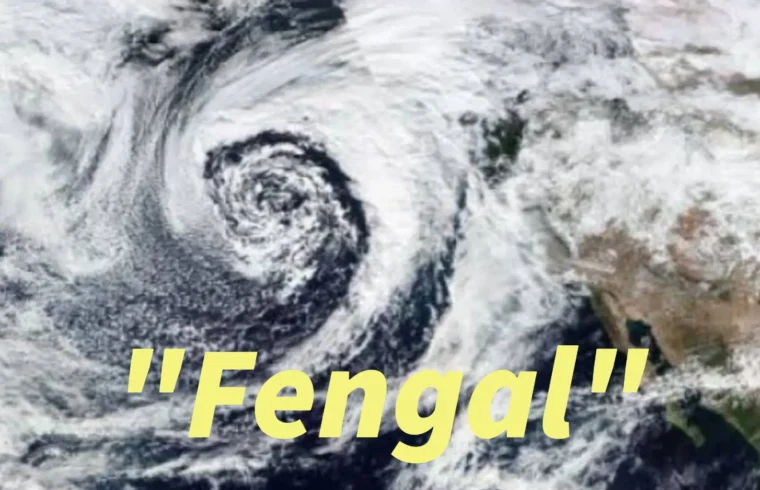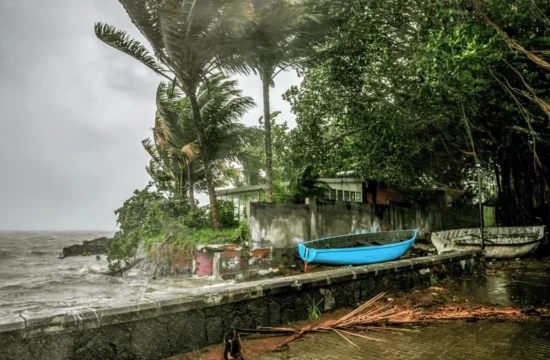Chennai— A deep depression currently forming over the southwest Bay of Bengal is expected to intensify into Cyclone Fengal by November 27, 2024, bringing heavy rainfall and strong winds to the Tamil Nadu coast. The India Meteorological Department (IMD) has issued urgent warnings for the region as the storm tracks toward the coast.
As of today, the deep depression is located approximately 800 km south-southeast of Chennai, and it is moving north-northwest at a steady pace. Weather experts are closely monitoring the system’s development, which is expected to intensify into a full-fledged cyclonic storm within the next 24 hours.
Heavy Rainfall and Strong Winds Expected
Residents of Tamil Nadu and Puducherry are being warned to prepare for heavy to very heavy rainfall, with some areas possibly receiving over 20 cm of rain on November 27. Local authorities have issued red and orange alerts for districts like Cuddalore, Mayiladuthurai, and Chennai, where the severe weather could cause disruptions, including potential flooding and power outages.
In addition to torrential rain, strong winds are expected to affect the region, with coastal areas likely to experience gale-force gusts. The IMD is advising people to remain indoors during the storm’s peak intensity, particularly in areas under alert.
Government Response and Precautions
In light of the anticipated weather, the Tamil Nadu government has declared a holiday for schools and colleges in Puducherry and Karaikal on November 27, as a precaution against the heavy rains. The government has also deployed seven teams from the National Disaster Response Force (NDRF) to high-risk areas to assist with evacuation efforts and emergency relief.
Local officials are advising residents to secure their homes, avoid unnecessary travel, and stay tuned to the latest weather updates. Shelters have been set up in vulnerable areas, and communities are being urged to follow safety guidelines to minimize the risk of accidents.
Cultural Significance of the Name “Fengal”
Cyclone Fengal, named by Saudi Arabia, follows the World Meteorological Organization’s established naming system. The name “Fengal” is derived from Arabic and is intended to be both culturally neutral and easy to pronounce across different languages, highlighting the collaborative nature of the international effort to track and name storms.
As Cyclone Fengal intensifies, authorities continue to monitor the storm’s path, urging residents in affected areas to remain vigilant. The next few days are expected to be critical for Tamil Nadu and Puducherry as they brace for what could be one of the heaviest storms of the season.
For more such information and news do follow The digisamachar.com.










